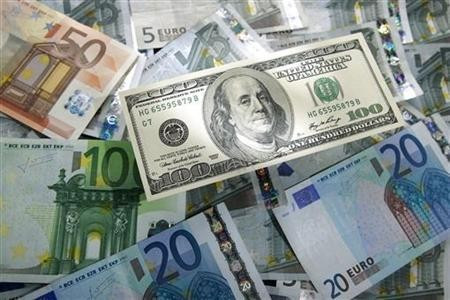Central Banks Watch: Russia, Norway, Korea, Indonesia, Philippines, Iceland and Switzerland to set rates

Three G10 central banks and five emerging market banks are scheduled to decide policy rates in the week to 12 December while the European Central Bank, the Bank of England and the Federal Reserve will be in the news for other economic reports.
The Reserve Bank of New Zealand and the Iceland central bank will announce their policies on 10 December.
The Swiss National Bank (SNB), Norges Bank, Bank of Korea (BoK), Bank Indonesia (BI), the Philippines central bank and the Central Bank of Russia are scheduled to set rates on 11 December.
After holding the main cash rate at 2.5% for three years since March 2011, the RBNZ hiked it to 3.5% by July this year with four 25 basis points instalments.
With little upward pressure on inflation or other hawkish data to support, the New Zealand central bank is likely to keep rates steady but the press conference after the policy announcement will be watched for rate cues.
The Iceland central bank, on the other hand, reduced the main interest rate to 5.75% from 6% in the November review and with the inflation rate down to a record low of 1% last month, the central bank will look for further cuts in the rates.
Iceland's GDP growth rate has come back to positive territory in the August report after recording negative rates in the three previous readings. But the economy might need further rate cuts for sustaining the growth momentum.
The SNB is expected to keep rates at 0% but the central bank comments this time will be crucial in the aftermath of the failure of the gold referendum that sought banning of the central bank selling gold, and signs that the ECB is preparing for further stimuli to the economy.
The BoK had cut its benchmark interest rate to a record low of 2% at the October meeting and data continues to be dovish from Asia's fourth largest economy.
Russia, Indonesia and the Philippines have been on a rate hiking cycle.
Russia has hiked the one-week repo rate, the main policy rate, four times this year, and the latest 31 October hike was of 150 basis points, pushing it to 9.5%.
The BI hiked the rate at the previous meeting to address inflationary challenges as the government hiked subsidised fuel prices in order to improve the fiscal health. On 18 November, the Indonesian rate was hiked by 75 basis points to 7.75%.
The Philippines hiked the main rate in July and September by 25 basis points each taking it to 4%. Data since then has not been suggesting further hikes or cuts so the rate is unlikely to be altered in the December review.
Norway has been keeping the main rate at 1.5% since early 2012 and no change is expected at the last review of this year. With crude oil prices at multi-year lows, Norwegian authorities are likely to be concerned about the strength of the currency and any remarks on that front will have a significant impact.
Pressure on non-dollar currencies
With an upbeat jobs report from the US on Friday, currencies other than the dollar will be under renewed downward pressure.
As per data on Friday, the US non-farm payroll additions rose to 321,000 in November, beating analysts' expectations, and pushing the 12-month average up to 278,000. Analysts believe that this number has shifted the dollar gear to a much higher level.
The next FOMC meeting is on 17 December. The US Fed's labour market index for November, due on Monday, will also be watched for likely positive surprise with the NFP having beaten estimates.
The BoE quarterly report for Q4 scheduled for Monday and ECB monthly report for November due Thursday are the other central bank publications other than the US labour market index.
© Copyright IBTimes 2025. All rights reserved.






















